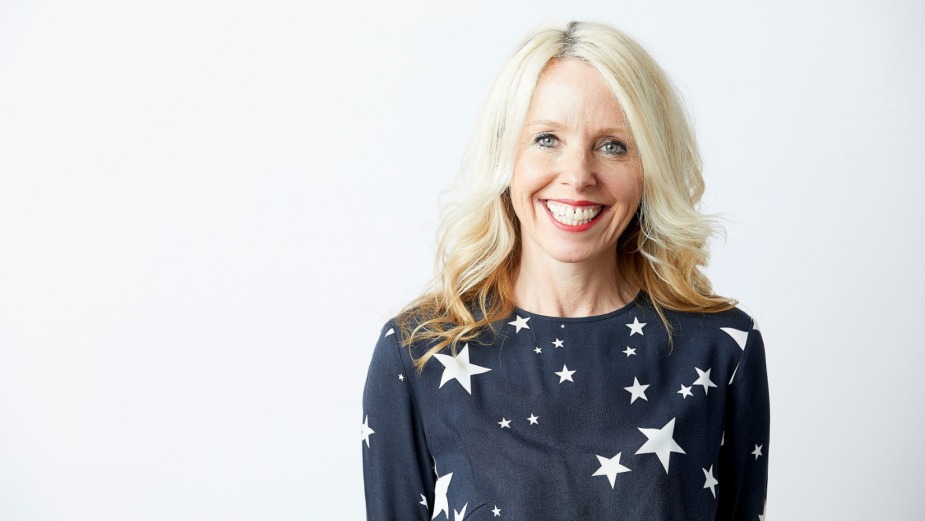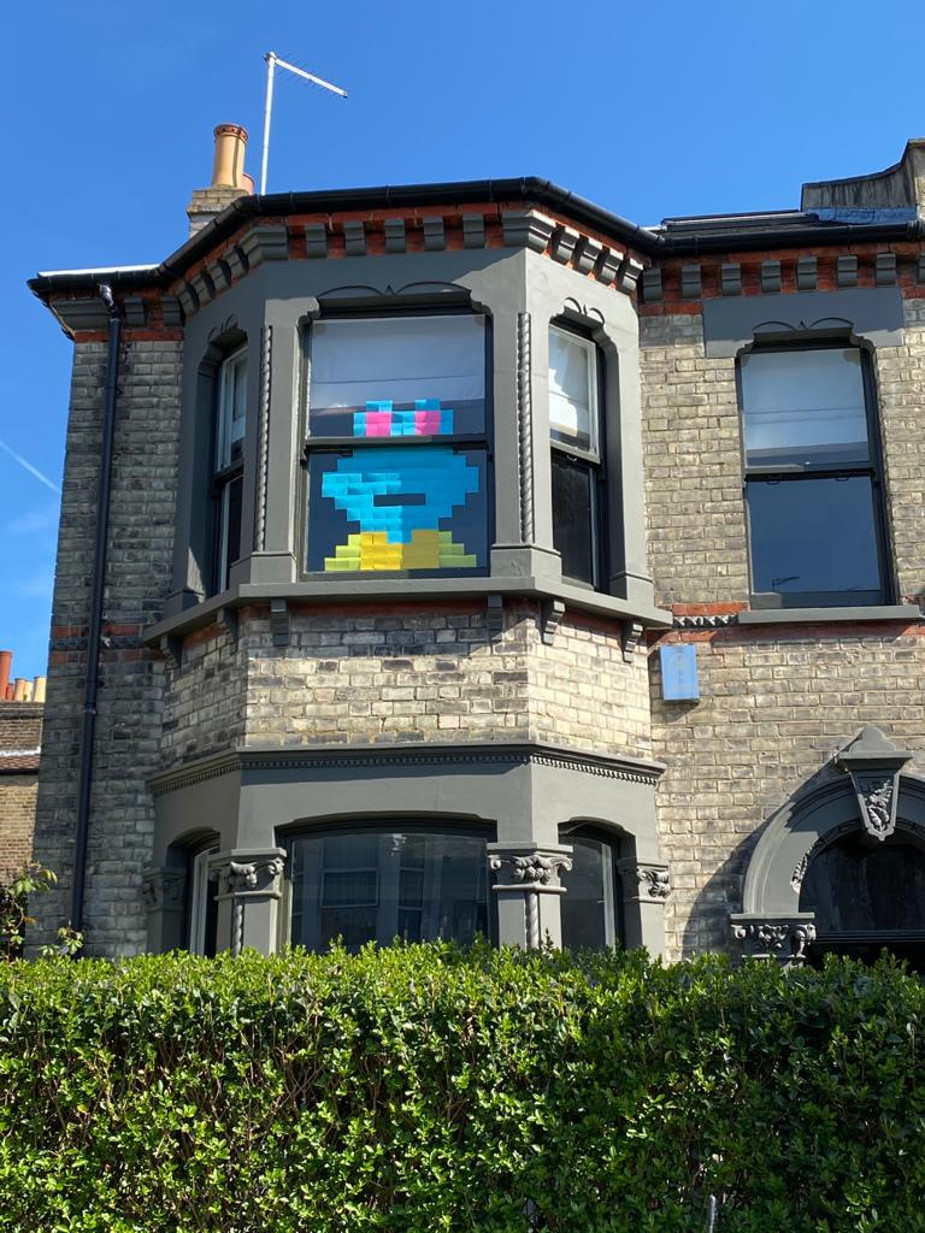
5 Minutes with… Pip Hulbert

Having worked on the creative, production, client services and operations sides of agencies before becoming CEO in 2017, Wunderman Thompson UK’s Pip Hulbert has seen advertising from various angles. And none of what she’s seen has put her off. Ever since her father (knowing business was unfortunately still a man’s world) suggested that advertising might be slightly less sexist than other industries, she’s been relishing the opportunity to make an impact on the industry. And advertising’s been making an impact on her, even leaving her physically wounded in the line of duty at one point.
With Covid-19 changing all of our lives, the past couple of months have seen Pip’s priorities refocus on the well-being of Wunderman Thompson’s employees and clients and she’s seizing the opportunity, as well as continuing to win business and keep putting out great work.
LBB’s Alex Reeves checked in with Pip to see how things are going for her and her agency.
LBB> We’re all getting used to life under lockdown now, but what’s it been like reacting to coronavirus as a business?
Pip> It’s terribly unsettling for anybody within the business, within communities, people’s families, and our country. It’s very difficult. You’re trying to operate as usual but your head’s full of lots of other challenges.
At Wunderman Thompson I was very proud of how quickly everybody adapted to a new rhythm of business. I sent a note out to the agency on Sunday 15th March, having taken the decision that we should all stay at home. So we’ve been working remotely since then.
I have been blown away by the fact that everybody has been very supportive, collaborative. And we’ve been very well organised in terms of just getting ourselves up and running. As a business we were already set up to use Microsoft Teams, so we have got a unified way of working. Having said that, we’re still adjusting to the fact that we’re not in contact physically with colleagues and our clients, so trying to adapt to a new rhythm of business whereby we’re looking after the well-being of our people from a mental resilience point of view. Because as much as we’re not together, we observed that we were overusing communication to connect. So we’re trying to work out how we can best work and find our way through it, being respectful to each other because we’ve all got different situations. People at home can feel quite isolated during this period. Some people are carers. A quarter of our business are parents. So we’ve got to lean into knowing that. I’ve got my child tied up underneath the table as I speak to you. Only joking! She’s in the garden at the moment!
LBB> And what changes have you found are important to make?
Pip> From my initial email telling people to work from home, Helen [Lee, marketing and business development director] and the team did a fantastic job. Within 24 hours we’d published a new rhythm of business - a timetable for the week. We set up guidelines for department heads to have a 9am team department kick off, made sure that at the end of the day we were checking in with people to make sure that mentally they were equipped and had got through the day, able to use channels to communicate and celebrate and share.
We always have an end of week wrap-up on a Friday where we have drinks and celebrate what’s gone on in the week and we’ve turned that into a live show. We have something called the Wheel of Fame, whereby colleagues can nominate people who’ve gone above and beyond and demonstrated behaviours to contribute towards creating famous work. We’ve got a giant game show style wheel in the agency but we’ve made a smaller one that we couriered to someone’s home and so when we do our live show somebody still gets to spin the wheel. The winner gets a £250 wardrobe voucher. We’re still managing to keep our culture intact with these kinds of weekly rituals.
We’re doing Pilates classes. We’ve got a wellness studio within the agency giving resilience training, nutritional advice, sleep school, art classes. We’ve put our programme online. We’re finding new ways of working and keeping mentally resilient and our fitness levels up.
LBB> In terms of how you’re responding to this with your clients. How does that look at the moment?
Pip> All of our clients are different and are adapting in their own ways. We have a mixture of global and local clients. For some of them it’s second nature because they’re used to connecting across the globe. So there are people that are used to it and there are people who are getting used to this change. At the same time, we’re being really mindful to help and support our clients to find new ways of working. It could be that the rhythm of business we have with certain clients may be slightly shifting so we can accommodate personal circumstances. For parents with kids it’s difficult, isn’t it? So we try and make sure we’re respectful. But we’re very much committed to business as usual. Currently we’re able meet delivery dates, we’re still making work, coming up with new ideas. So I’m pleased to say everybody’s committed.
LBB> It’d be nice to set coronavirus aside for a minute, I think, and get a bit nostalgic. Where did you grow up and what were you like as a kid?
Pip> I grew up in a place called Thornbury, which is north of Bristol. A small town. Probably a ‘regular’ childhood. I enjoyed the arts and creativity, so I got into this industry. It was actually my father who said I should go and work in advertising because he felt that it was good for a woman to be able to ‘get on’ in advertising. He felt that back then there were many industries that women wouldn’t be able to get on in.
I aspired to be more of a creative than a CEO. But I’ve done pretty much most jobs in an agency. I’ve been a creative, I was in production for a long time. The very first job I did in an agency, I was responsible for spray-mounting the union stickers onto the back of bromides for the press ads. We had so many ads that went out, so I’d have to cut all of these stickers out with a scalpel. And when I was going fast one time to get all of these out in the post, I nearly cut my forefinger off. But in the spirit of not letting the side down and making sure the ads went out, I just taped it together. So now I’ve got quite a horrific scar on my finger!
LBB> You first went into advertising on your dad’s advice. Was there a moment when you realised you really wanted to stay in the business?
Pip> I think straight away. He recognised that I was a creative spirit. I’d done art at school. It was good to be with like-minded creative thinkers. So from the first time I worked in agencies I enjoyed the dynamic of lots of different types of personalities and creative thinkers. There is encouragement to be your own person and to be able to contribute. I’ve been very lucky where I’ve worked that I haven’t been restrained by a culture that doesn’t feel right for me.
LBB> How did you transition through so many roles within agencies to end up as CEO?
Pip> I probably should come up with some way to say it was a strategic, carefully laid path, but I’m pretty straightforward. I’ve always been happy with the people I work with and have enjoyed doing what I’m doing and then been fortunate to have my contributions recognised so I can take on more responsibility. Then I’ve just always enjoyed rising to the challenge.
LBB> Were there any particular projects or moments that you look back on as being formative?
Pip> When I first joined Wunderman Thompson [prior to the merger when it was Wunderman], my objective was to drive new business. In 2013 I helped lead the pitches for some of our biggest clients to date, ranging from Shell globally to BT. I do feel very proud to have orchestrated and won that new business.
LBB> For you, is winning new business an important part of measuring achievement, as opposed to, say, creative awards?
Pip> It’s interesting. For me it isn’t about creative awards. We do aspire to win those awards and creativity is absolutely critical and the core of the agency. But how do you define creative? Who are the judges to define what creative is? I think winning business becomes very personal. You’ve proven yourself in the business context that you’re able to understand a client and help a client. But also on a personal level that you’ve built that relationship and bond to be able to work with them in a partnership.
LBB> What work have you done recently that you like to run up the flagpole to show people what your agency does best?
Pip> I would go to last year when we won BT Sport. That was really testament to what the potential was for the combined Wunderman and Thompson teams. Because I don’t think we would have won that business alone as either Wunderman or J. Walter Thompson. It came from a real collaboration of skill sets - data science, creativity, brand planning, digital planning, experiential. All of that was applied to that business, which then made the campaigns quite unique.
At the moment what we’re striving to do is make sure that we’re cross-pollinating teams. We’ve had a lot of success with that to demonstrate that we can bring in resources that can tackle our clients’ business problems in different ways. We can reframe those challenges and look to make culturally relevant work that may take a different shape to what it had done previously. Clients are welcoming those fresh ideas. There’s work that we’ve done for GSK, which is outstanding, about bringing in different technologies, there’s work we’re doing for HSBC, which is really helping to build that brand.
LBB> What else are you doing that you’re excited about at the moment?
Pip> We did a big thought leadership piece at the start of the year - the Future 100, identifying 100 different trends. We’ve also now written some thought leadership around the Covid-19 impact and how consumers’ behaviour will change moving forward. Not from a stance of profiteering, but how we support our clients to navigate what will be a really different world by the time we come out of this. We’re trying to be on the front foot, to better understand consumer insight through data and apply trends as we see them playing out.
We also just launched Wunderman Thompson Talks, an inspirational learning programme with six modules. It started off with some of the key trends combined with the economic climate we’re in at the moment. It’s six 20-minute sessions with a Q&A afterwards to really make sure that people are connected, but also thinking outside of the day to day of delivering business as usual, understanding how we need to prepare ourselves to continue to build brands going forwards.
LBB> Are you finding new things to occupy yourself with in lockdown?
Pip> I’ve done some Post-It art in my window. It’s a frog made of Post-Its… Oh, sorry, my daughter is just telling me it’s not a frog, it’s an alien! We’ve started that in our street. All of the houses are using Post-It notes to create art to inspire and send messages.














